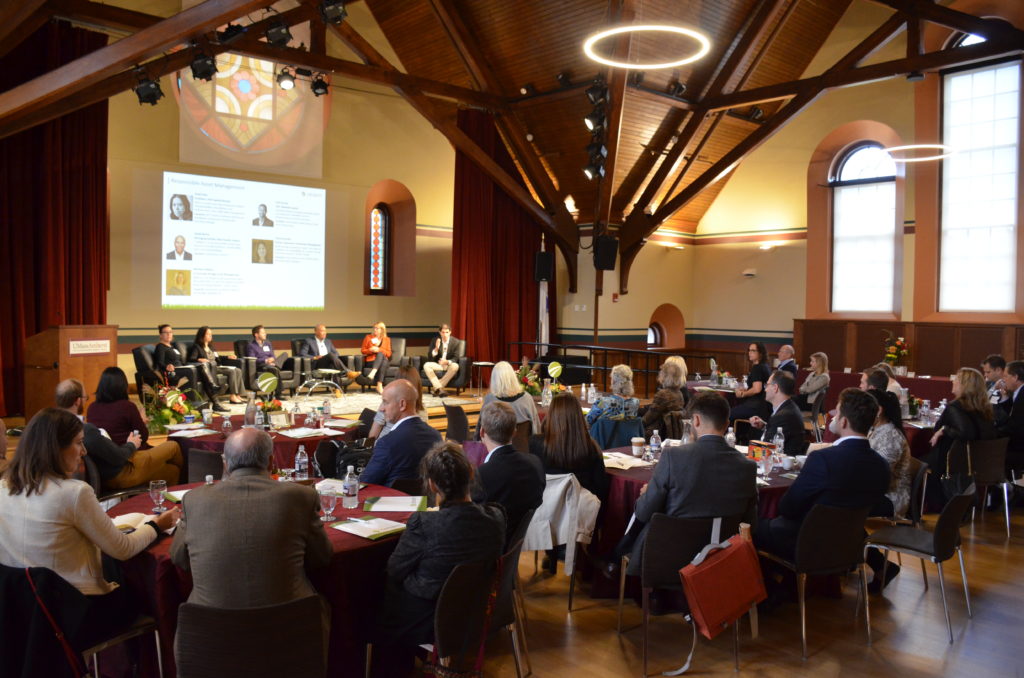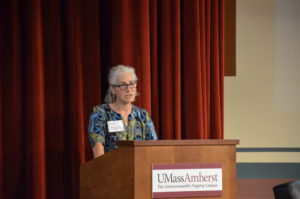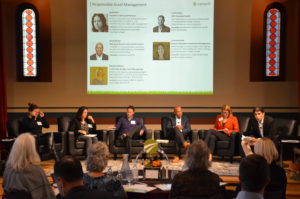On Tuesday, October 24th, 2017, Ceniarth was proud to host its first ever Portfolio Summit. The convening brought together an invitation-only group of our portfolio companies, advisors, and peer investors for a closed-door chance to reflect on the development of the impact investment field and to share insights from our collective work. Given Ceniarth’s historical support and affiliation with the University of Massachusetts (via the Isenberg Family Charitable Foundation), the Summit was hosted on the campus of UMass Amherst.
Ceniarth Founding Director Diane Isenberg opened the Summit by framing the challenges that the sector faces in stark and honest terms:
“Last week I attended the annual conference of a well known African private equity fund . As I listened to speakers extol a rosy vision of a modern Africa enabled by leap frogging technologies and fueled by the disposable incomes of a growing middle class , I thought about all of the people who would be left behind just as they have been in markets in developed countries. It reinforced the importance of the work that many of us continue to do, despite the challenges and uncertainty of returns, to figure out how to provide at least some of that rosy future to those populations that traditional market-based companies often exclude to reach profitability . To me the elephant in the room is just this. The emerging populist view of impact investing is that investors can do good and do well and that this will solve all of the problems that development aid and philanthropy have been grappling with long before the words impact investing were even invented. Thankfully doing good and doing well will be the answer to some problems. However it will also be a formula that continues to exclude many of the most vulnerable populations both urban and rural.”
Diane’s remarks set the tone for a day of open, frank sharing that touched on some of the thorniest issues in our sector: the potential trade-offs between impact and returns, the utility of impact measurement, and the appropriate use of subsidy and grant capital were all featured topics of lively debate and dialogue.
Panel discussions were organized around Ceniarth’s three primary investment strategies, Responsible Asset Management, Impact-Driven Capital Preservation, and Programmatic Investments. For more information about the composition of our portfolio, you can download this recent presentation on our strategy and holdings, or view a Confluence webinar by Ceniarth Director Greg Neichin.
We are incredibly appreciative for all of our portfolio companies, managers, advisors, and peers that attended including: Generation Investment Management, Bridges Fund Management, Bain Double Impact, Generate Capital, Hall Capital Partners, Goldman Sachs, Global Partnerships, Root Capital, Advance Global Capital, One Acre Fund, Frontier Markets, ColaLife, Maycomb Capital, Village Capital, Candide Group, MacArthur Foundation, Packard Foundation, Sorenson Impact Center, Calvert Impact Capital, Omidyar, and Acumen.



